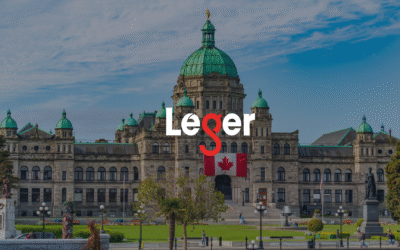From December 20 to 22, 2024, we surveyed Canadians on Justin Trudeau’s leadership.
Some of the key highlights of our survey include…
-
Despite a tumultuous week in Parliament, voting intentions remain stable. Pierre Poilievre’s Conservative Party is currently leading by 23 points, ahead of Justin Trudeau’s Liberal Party. If a federal election were held today, 43% of Canadians would vote for the Conservative Party of Canada, while 20% would vote for Justin Trudeau’s Liberal Party. The NDP trail at 19%.
-
Nearly three-quarters of Canadians (72%) say they are dissatisfied with Justin Trudeau’s government. This represents an increase of three points compared to the previous measurement.
-
Justin Trudeau (11%) is now in third place among party leaders who would make the best prime minister, representing a four-point decrease since the beginning of December. Pierre Poilievre ranks first (31%), followed by Jagmeet Singh (13%).
-
Seven in ten Canadians (69%) believe Justin Trudeau should resign to allow someone else to lead the Liberal Party in the next election. This marks a seven-point increase compared to September 2024, the last time the question was asked. Among Conservative voters, 88% think Trudeau should resign and one third (33%) of current Liberal supporters feel likewise. In a late June 2024 Leger poll, 26% of Liberal voters said Justin Trudeau should not lead the Party in the next election (i.e., resign). 7-points less than what this poll found.
-
Among the potential successors to Justin Trudeau, Chrystia Freeland is leading the way with 15% support, followed by Mark Carney (7%) and Dominic LeBlanc and Mélanie Joly tied at 4%. François-Philippe Champagne, Christy Clark, and Anita Anand each received 3% support. Chrystia Freeland also stands out among Liberal voters, with 21% support.
Methodology
This web survey was conducted from December 20 to December 22, 2024, with 1,521 Canadians aged 18 or older, randomly recruited from LEO’s online panel. A margin of error cannot be associated with a non-probability sample in a panel survey.
For comparison purposes, a probability sample of this size yields a margin of error no greater than ±2.51%, (19 times out of 20) for the Canadian sample.




